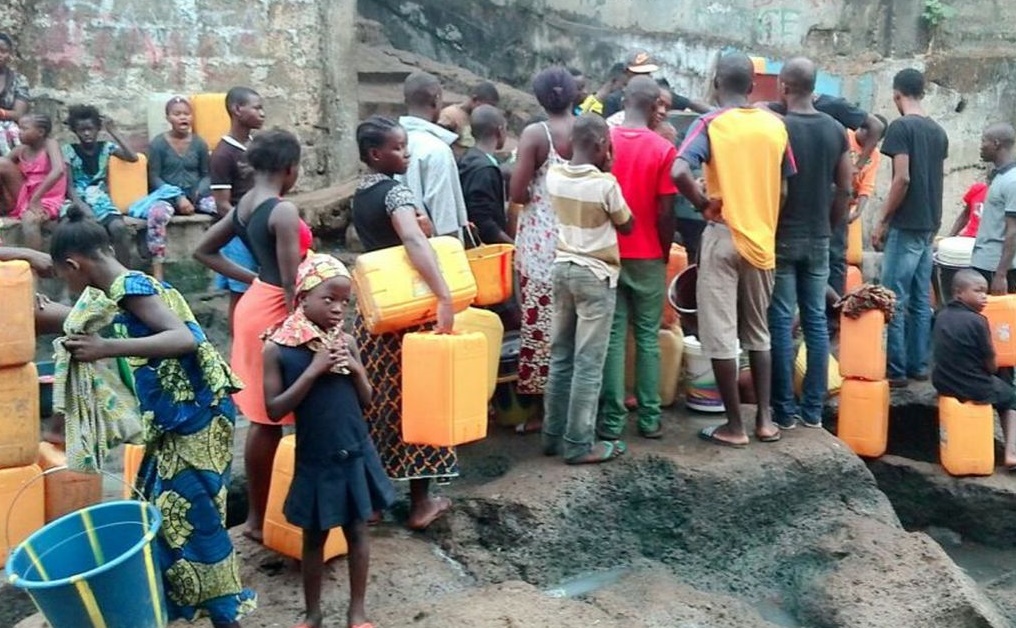As today World Water Day is commemorated, we take a look at Sierra Leone’s major problems of accessing quality water and adequate standard of living.
Over the years, Sierra Leoneans have been facing constant constraints with access to clean water supply and that has greatly affected the living standards of citizens.
The World Health Organisation reports that almost half of the inhabitants of Sierra Leone collect their drinking water from highly polluted, unprotected water sources.
WHO further reports that, “Almost half of the population of Sierra Leone has no access to safe drinking water and only 13 percent of the population has access to improved non-shared sanitation facilities. Some 74 percent of urban dwellers have access to safe drinking water while only 46 percent of rural people use safe water.”
“The majority of Sierra Leone citizens obtain their water from ponds, freestanding water and wells. However, these water sources are not protected by government regulations which has led to polluted and contaminated water,” Shannon Warren stated in an article in the Borgen Times.

She noted that water borne infections and parasites found within contaminated water are one of the leading causes of death within the nation of Sierra Leone, adding that the poor water sanitation within the nation has resulted in increased risks of Sierra Leoneans contracting Typhoid Fever and Hepatitis A.
“Additionally, the large numbers of stagnant water sources have provided malaria-carrying mosquitoes with a environment in which they can thrive. As a result, malaria has become the region’s most common and most deadly contracted infection,” Warren added.
Water pollution is also a major concern for the overall Sierra Leone water quality. Pollution from mining as well as chemicals from agriculture have seeped into water sources commonly used by rural citizens of Sierra Leone.
Moreover, increased urbanization and infrastructure has also contributed to a large amount of pollution found with Sierra Leone water.
The water crisis is worsening every day. We travel far distances and spent hours on waiting on long lines to fetch water,” Amie Sesay, a Freetown resident said.
“Many people, including young school girls go out at night to search for water instead of studying or sleeping. And this is dangerous for their safety and well-being,” she said.
The local media have also reported several incidents of water struggle in the capital, portraying citizens waiting in long queues to fill their containers from taps and water wells.
The Guma Valley Water Company, that is responsible for providing water to Freetown residents blamed environmental problems and illegal activities on the water catchment areas for the water problem in the capital.
“The effects of the shortage may be severe in a country where deaths from waterborne diseases are common,” Warren noted.
In order to provide improved water and sanitation to citizens, the government has over the years increased financing, improved water laws, water education and establishing and building sanitation and water supply services.
Additional aid to improve Sierra Leone water quality has come from organizations such as the European Union, UNICEF, the Water Project, DFID and WaterAid. These humanitarian aids from international partners have been responsible for building thousands of clean wells within the country and improving the standard of living for Sierra Leoneans.
“With continued efforts from the government of Sierra Leone, specialized agencies and humanitarian organizations, many people predict that Sierra Leone water quality will only continue to improve within the country,” Warren stated.



 Post a comment
Post a comment









Comment(s)
Disclaimer: Comments expressed here do not reflect the opinions of Sierraloaded or any employee thereof.
Be the first to comment